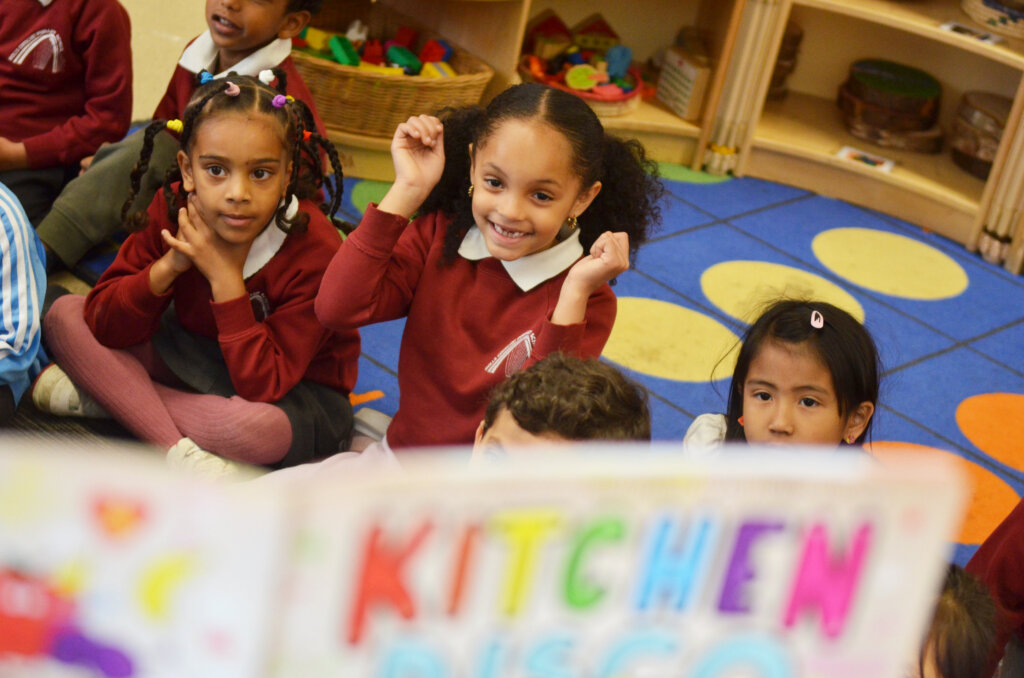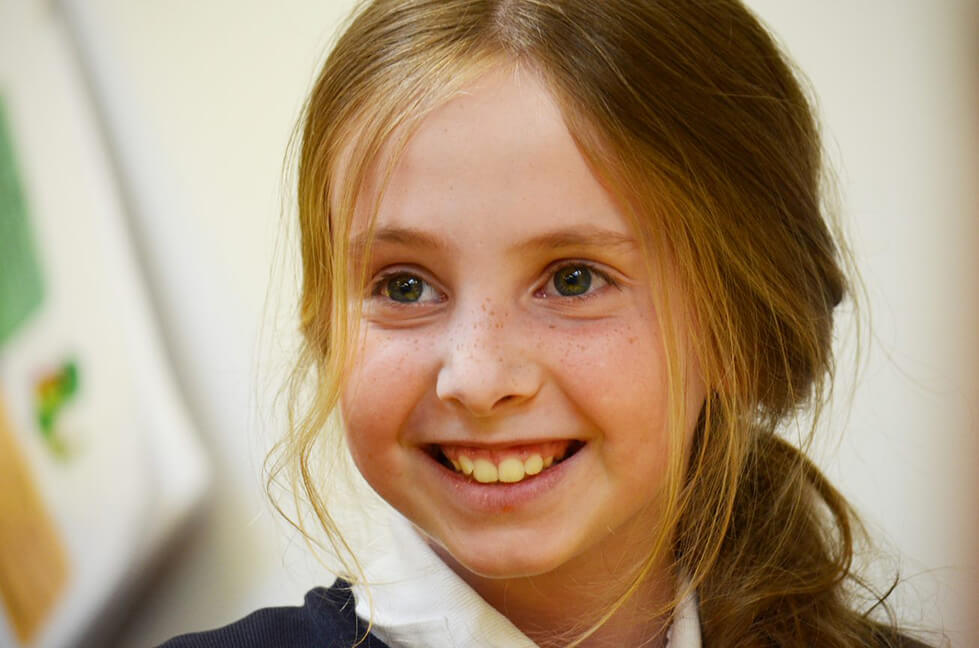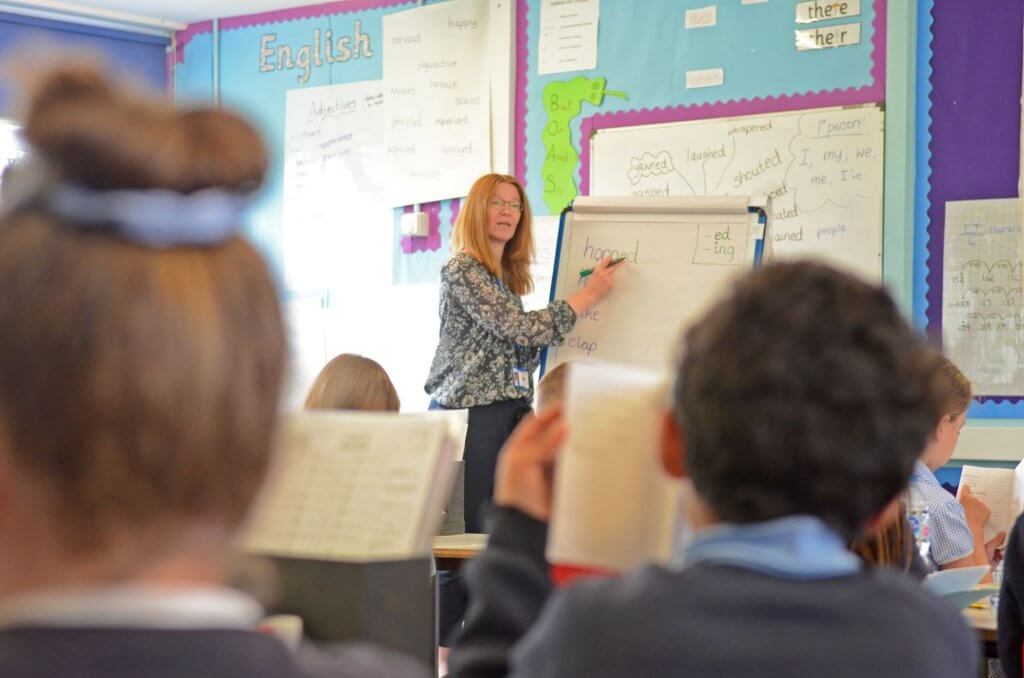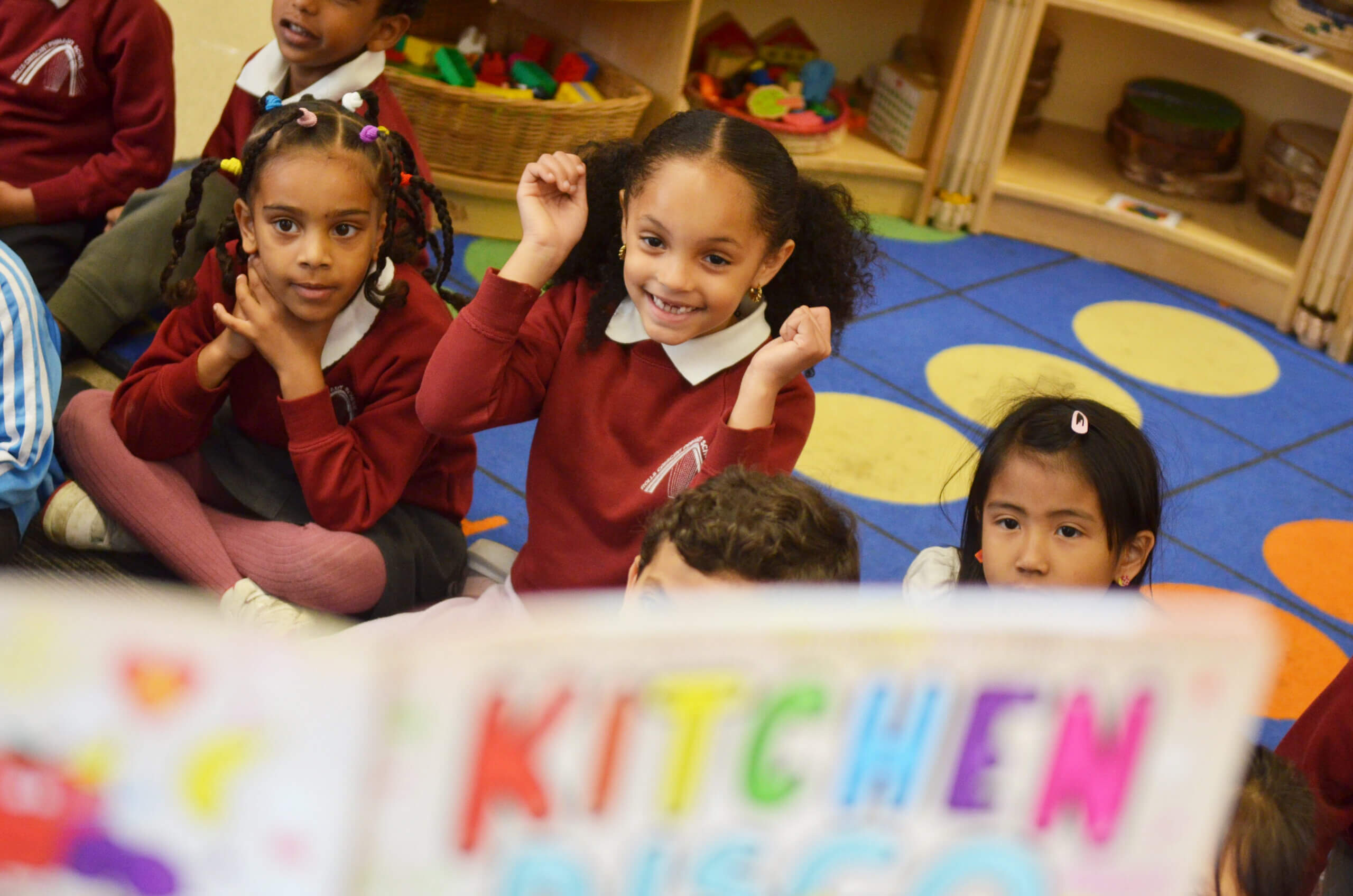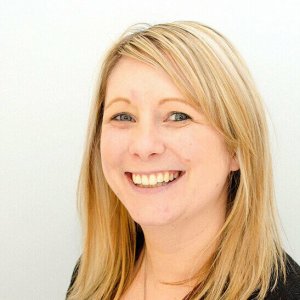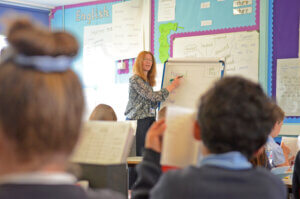The recent Ofsted research report, “Strong Foundations in the First Years of School,” (October 2024) has sparked both interest and debate within the education sector. Its focus is on the importance that Reception and Key Stage One (KS1) play in building the critical early foundations to learning.
This blog delves into key points of the report, with a particular focus on its four thematic summaries—curriculum, pedagogy, assessment, and personal development, behaviour, and attitudes. Along the way, we’ll highlight reflective questions for school leaders, as well as the mixed responses to some of its broader themes.
Navigating the first years of school
It would be amiss of me not to mention that this report includes the last year of EYFS, Reception, with KS1, whereas the third in a series of reports from Ofsted, “Best start in life: a research review for early years,” focuses on Early Years prior to Reception.
Some look at this as a welcomed approach recognising KS1 as being linked to the foundations of learning – just as Reception often is. However, the separation of Reception to the rest of EYFS has drawn criticism on social media, with educators expressing concern that some schools may wrongly interpret that Reception should take a top down approach and then formalise learning too soon. We know our children currently start formal education earlier than any other country named in the OECD so, for me, I see this as an opportunity to extend the best practice from EYFS into KS1 in order to develop strong foundations in learning.
The effectiveness of play-based learning
The report questions the effectiveness of unplanned play-based learning, emphasising that play should have a clear learning purpose. Whilst this point aims to ensure high-quality practice in the first years of school, it has caused concern among advocates for play. Educators have long since recognised that active hands and bodies support learning – fundamental to strong foundations – yet this quote “their hands and bodies are active, but their minds are not” taken from the report has brought criticism with it.
The critique of the report, however, serves as a reminder that high-quality play needs to be supported by adults who understand the importance of the role of the adult within play and the spectrum of playful learning.

In addition to considering the spectrum of playful learning, educators must consider the types of play available and the stages of play children go through. For more information take a look at the research review and free toolkit on play-based learning created by Jo Gray alongside the Chartered College of Teaching.
We know play-based learning, also known as playful learning, empowers children to explore, imagine, and experiment in a way that feels natural and joyful. Research shows that play fosters cognitive, social, and emotional development, making it an invaluable tool in the first years of school. When guided by expert practitioners, play becomes a dynamic avenue for embedding foundational knowledge, nurturing creativity, and cultivating problem-solving abilities. In the context of the “Strong Foundations in the First Years of School” report, it’s clear that intentional, purposeful play must remain a cornerstone of any effective practice in order to support child development.
Moving beyond teaching for tests
One of the report’s most well-received elements is its stance against teaching children for the sole purpose of passing assessments. It emphasises that children do not need to record everything in writing and that teaching should be tailored to individual learning needs rather than a one-size-fits-all approach. This report supports the DfE’s stance that assessment at the end of KS1 should come from ‘a broad range of evidence from across the curriculum and knowledge of how a pupil has performed over time and in a variety of contexts. Teachers can consider the pupil’s: written, practical and oral classwork’ (Optional key stage 1 teacher assessment guidance 2025).
“Strong Foundations in the First Years of School” builds upon this further and states that despite the end of KS1 tests being no longer statutory, Ofsted are seeing many schools who are still preparing children and “teaching to the test.” Identifying this and recognising a needed shift resonates with educators striving to prioritise meaningful learning experiences for all children. It helps educators to feel reassured that supporting the individual child with where they are in their learning journey is the best approach and, in turn, reminds us that our children have one chance of childhood.
The four key themes
The heart of the report lies in its exploration of four key areas—curriculum, pedagogy, assessment, and personal development, behaviour, and attitudes. These areas serve as a practical framework for schools to reflect upon their practices.
Curriculum: Clarity and Purpose
The report calls for a clear and focused curriculum that prioritises foundational knowledge and skills which children need by the end of KS1. It cautions against overloading the curriculum with excessive content, inappropriate whole school approaches, rushing through content, or not considering individual needs within the curriculum.
Key Recommendations:
- Define and focus on the foundational knowledge children should acquire and how to assess it.
- Allow time for consolidation of key skills, such as phonics and number fluency.
- Avoid non-essential activities or content that detracts from core learning goals.
- Take into account individual children’s starting points.
Ofsted’s Questions for School Leaders:
- Does the curriculum prioritise children’s communication and language?
- How do you make sure that the curriculum gives enough emphasis to other foundational knowledge and skills, such as addition facts, handwriting, and how to write simple sentences (depending on year group and EYFS/national curriculum requirements)?
- Do whole school approaches get in the way of children learning important foundational knowledge in the early years and key stage 1? Do these approaches (for example, to extended writing or reading comprehension) expect children to do too much too soon?
- When activities are designed, to what extent is the focus on what children should learn and practise and how all children will benefit?
- To what extent does the curriculum reflect children’s starting points? Does it sufficiently emphasise the knowledge and skills that children need to learn so that they are not held back later?
Pedagogy: Developmentally Appropriate Teaching
Pedagogy is highlighted as a critical factor in supporting children’s learning. Ofsted encourages schools to balance structured teaching with exploratory play, ensuring that approaches are developmentally appropriate and aligned with children’s needs.
Key Recommendations:
- Tailor teaching approaches to children’s developmental readiness.
- Strengthen staff expertise in effective play-based and exploratory learning.
- Provide opportunities for children to embed their learning through practice and repetition, reducing the overload on children’s working memory.
- Adapt tasks so that children feel a sense of independence and success
Ofsted’s Questions for School Leaders:
- How do you make sure that all children get enough practice to become fluent in using important foundational knowledge?
- How are tasks broken down to focus on small steps of learning and to prepare children for what comes next?
- What routines help children to maintain attention without overloading their working memory?
- How are distractions kept to a minimum to help children focus?
- Does instruction involve all children, including those who find learning more difficult?
- How do you make sure that children with lower starting points have enough opportunities to interact with adults?
- To what extent have you considered what children are thinking during play-based or playful learning?
- Do all staff understand how play can develop children’s language and executive functioning and help them to learn important knowledge?
- Do staff know how to address children’s speech, language and communication difficulties?
Assessment: Supporting, Not Driving, Teaching
The report identifies that assessment should serve as a tool to inform teaching rather than dictate it. Schools are encouraged to focus on identifying gaps in children’s understanding and supporting their progress rather than preparing children for standardised tests.
Key Recommendations:
- Use assessments to identify misunderstandings and guide targeted interventions.
- Avoid letting external assessments dominate teaching practices.
- Use assessment data effectively to support individual learners.
- Check whether children have learned knowledge before moving on.
- Consider if there is an overreliance on recording evidence especially in reception.
- Consider how we share the most useful information at key transition points.
Ofsted’s Questions for School Leaders:
- Does training make sure that staff can anticipate and deal with misconceptions during instruction and practice?
- Do gaps in knowledge for the lowest-attaining children persist? If so, why?
- To what extent do current reading and writing tasks replicate end of key stage tests? Can tasks be introduced that provide practice (and opportunities for assessment) in foundational knowledge?
- How do you assess foundational knowledge and skills such as handwriting and number facts?
- How might information about any gaps in children’s knowledge be shared most effectively with the children’s next teacher?
Personal Development, Behaviour and Attitudes: A Holistic Approach
Finally, the report stresses the importance of children’s personal development and behaviour as foundational to their readiness to learn. It acknowledges the social and emotional challenges faced by children, particularly post-pandemic, and highlights the need for schools to create nurturing environments.
Key Recommendations:
- Establish routines and clear expectations to help children feel secure.
- Address barriers to learning, such as speech and language delays, through targeted support.
- Promote children’s social and emotional development alongside academic learning.
- Consider those children who have had less experiences than others.
Ofsted’s Questions for School Leaders:
- How do you help children to get on with others and learn well? In particular, how do you help children who have less previous experience of this than others?
- How do you make sure that activities enable children to learn and to be able to do what you expect? How do you make sure that activities are not too complicated?
Strong foundations and the magic of childhood
Ofsted’s “Strong Foundations in the First Years of School” offers insights and guidance for improving outcomes in Reception and KS1 whilst considering child development, childhood and the individual child. While it has sparked debate, overall, the report encourages educators to reflect on their practices, reduces the pressure of having to ‘get through’ the curriculum content despite knowing not all children are secure in the foundations of the curriculum, and reassures educators that considering the individual starting points of each child is not only good practice, but necessary.
As educators and policymakers reflect on the recommendations in Ofsted’s “Strong Foundations in the First Years of School,” it’s vital to remember that childhood is a unique and fleeting time. Play-based learning, or playful learning, is not just an approach; it’s a philosophy that celebrates the innate curiosity of children and harnesses it to build a robust foundation for lifelong learning. Though there are challenges in achieving the balance between developing strong foundations in both knowledge and wonder, we know the impact can create a childhood full of magic alongside a life-long love of learning.
By considering the reflective questions posed under each thematic area, school leaders can identify strengths and areas for growth, ensuring that every child has the support they need in an approach that supports building strong foundation for future success.
For more details, you can access the full report here.
For further support or CPD in playful learning or the strong foundations in the first years, then please get in touch with Jo Gray, Head of Educational Development Services.
Please complete the form below and we will get in contact as soon as we can to help you with your query.


